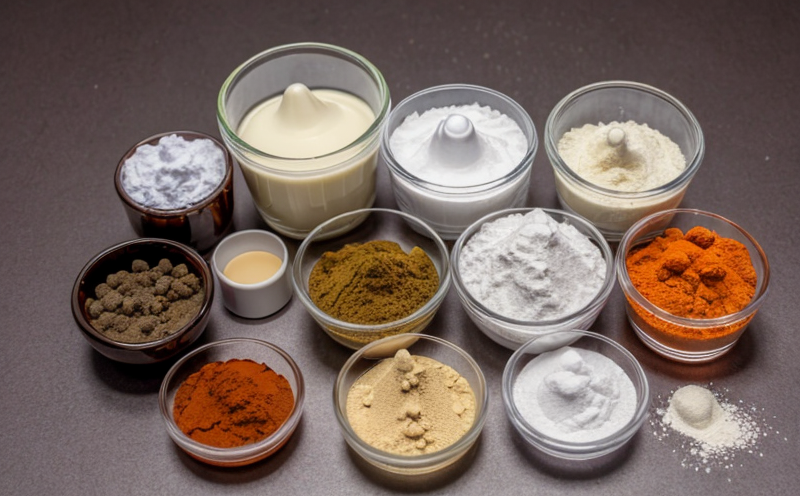HPMC Viscosity Profiling Testing
The hydroxypropyl methylcellulose (HPMC) family of excipients is widely used in pharmaceutical formulations due to its versatility and stability. HPMC serves multiple roles, including disintegrant, binder, retardant, emulsifier, thickener, and viscosity modifier. The viscosity profile of HPMC is a critical factor influencing the dissolution rate, drug release properties, and overall performance of dosage forms.
Viscosity profiling testing provides detailed information on how HPMC behaves under various shear rates, which can significantly impact formulation behavior and product quality. This testing is essential for ensuring that the excipient meets specification requirements and performs as expected in the manufacturing process. Understanding viscosity at different shear rates allows pharmaceutical scientists to optimize formulations, enhance drug delivery systems, and comply with regulatory standards.
The test involves subjecting HPMC samples to a controlled shear stress environment using a viscometer. The sample is typically dissolved or suspended in an appropriate solvent before testing. The viscosity profile is then determined by measuring the torque required to stir the solution at different rotational speeds, which corresponds to varying shear rates.
Accurate viscosity profiling ensures that the HPMC behaves predictably during tabletting and capsule filling processes, as well as in the dissolution of oral dosage forms. It helps identify optimal concentrations for formulation development and aids in understanding how changes in process conditions affect final product properties.
This testing is critical not only for ensuring quality but also for maintaining consistency across batches produced by different suppliers or during scale-up from laboratory to production levels. By providing precise viscosity data, this service supports compliance with international standards such as ISO and USP (United States Pharmacopeia), which specify acceptable ranges for HPMC viscosities in various applications.
Understanding the full viscosity profile of HPMC is essential for addressing challenges like inconsistent tablet disintegration times or varying dissolution rates. For instance, higher molecular weight HPMCs tend to have lower viscosities at low shear rates but increase in viscosity significantly with increasing shear stress. Conversely, lower molecular weight HPMCs exhibit opposite behavior. This knowledge allows formulators to tailor excipient selection and usage based on specific formulation needs.
Scope and Methodology
The scope of HPMC viscosity profiling testing includes evaluating the shear stress-viscosity relationship over a range of shear rates. This comprehensive evaluation provides insights into how HPMC behaves under varying mechanical stresses, which is crucial for optimizing its use in pharmaceutical products.
Testing typically begins with dissolving or suspending the sample in an appropriate solvent to achieve the desired concentration and dispersion. The sample is then loaded into a viscometer compatible with the required shear rate range. A controlled temperature environment ensures accurate measurements, as HPMC viscosity can be affected by temperature variations.
Measurements are taken at multiple rotational speeds (shear rates) within the specified range, typically from 10 to 1000 rpm for liquid samples or equivalent ranges for suspensions. The torque required to maintain each rotation is recorded and converted into a viscosity value using Newtonian fluid equations.
The data collected during testing forms the basis of the viscosity profile, which can be represented graphically as a plot of shear rate versus viscosity. This visual representation helps identify important characteristics such as the onset of plastic flow or the transition between Newtonian and non-Newtonian behavior.
Industry Applications
| Application | Description |
|---|---|
| Dissolution Testing | HPMC viscosity affects the dissolution behavior of tablets and capsules. Understanding this relationship is crucial for predicting drug release rates. |
| Tablet Disintegration | The disintegration time of tablets can be influenced by HPMC’s viscosity, particularly in the binder role. Optimizing viscosity ensures consistent tablet performance. |
| Capsule Filling | HPMC serves as a lubricant and binder in capsule formulations. Its viscosity profile impacts the ease of filling capsules with dry powder mixtures. |
| Dosage Form Stability | Viscosity profiling helps ensure that HPMC remains stable during storage and processing, maintaining its intended properties over time. |
| Pharmaceutical Syrup Viscosity | For liquid formulations, viscosity affects flow characteristics and shelf life. Accurate testing ensures the syrup meets quality standards. |
| Coating Solutions | The viscosity of HPMC solutions used in coating processes directly influences the thickness and uniformity of coatings on tablets or other dosage forms. |
| Powder Flowability | Viscosity testing can help determine the optimal amount of HPMC needed to improve powder flow properties, reducing processing challenges. |
Competitive Advantage and Market Impact
In a highly competitive pharmaceutical market where product quality and consistency are paramount, accurate HPMC viscosity profiling testing offers significant advantages. By providing detailed insights into the behavior of HPMC under various shear rates, this service enables formulators to make informed decisions that enhance drug delivery efficiency and patient satisfaction.
Understanding how changes in processing conditions or formulation parameters affect HPMC’s viscosity allows companies to innovate more effectively while ensuring compliance with regulatory requirements. This knowledge translates into better performing products, reduced development time, and lower manufacturing costs. Moreover, the ability to consistently produce high-quality formulations contributes to a company's reputation for reliability and quality.
For R&D teams, this service is invaluable in exploring new formulation approaches and optimizing existing ones. It supports the development of novel dosage forms that meet evolving therapeutic needs while adhering to stringent regulatory guidelines. By staying ahead of industry trends and regulatory changes, companies can maintain a competitive edge in an ever-evolving market.
In summary, HPMC viscosity profiling testing is not just a technical service but also a strategic tool for maintaining quality standards, ensuring product consistency, and driving innovation in the pharmaceutical sector. It plays a vital role in sustaining trust among healthcare providers and patients while contributing to the overall advancement of pharmaceutical science.





